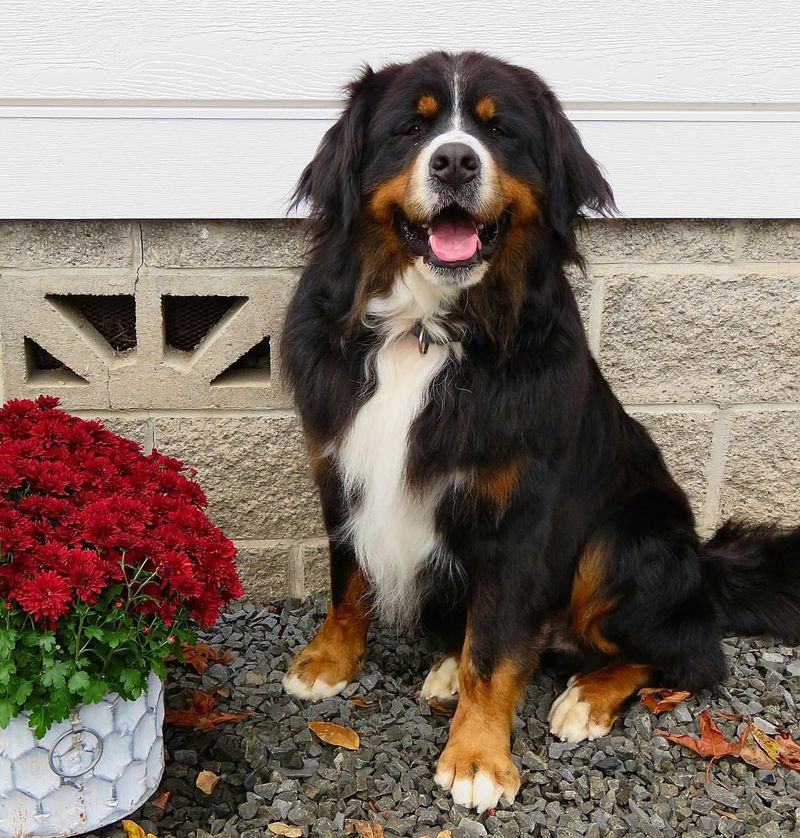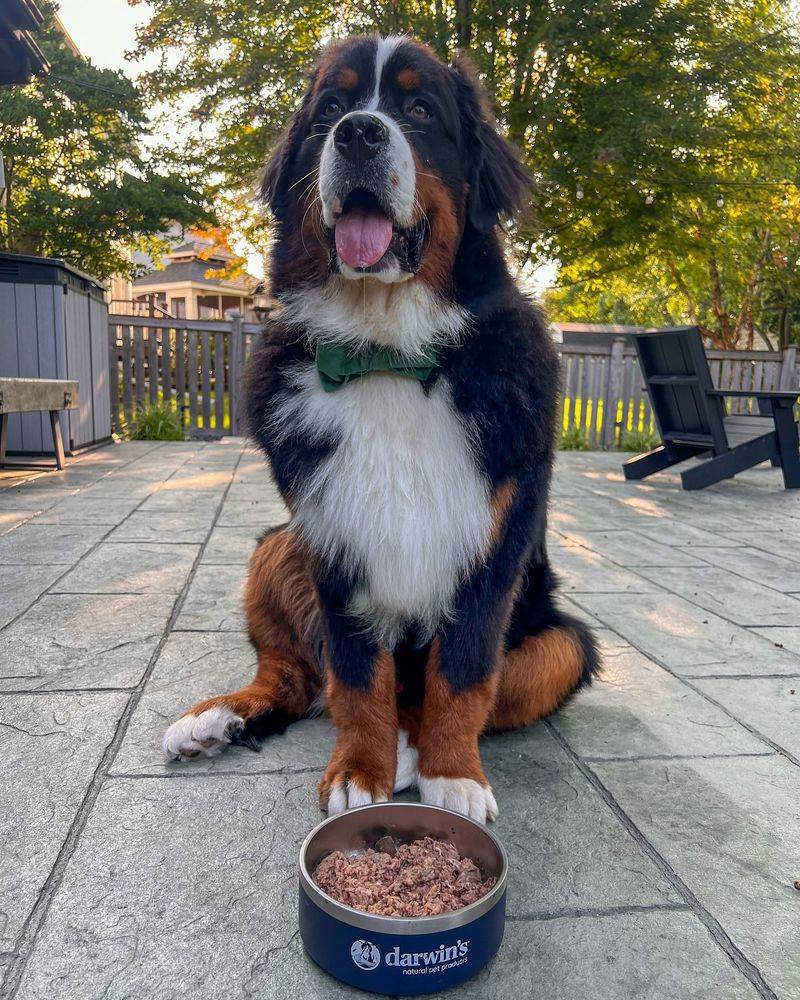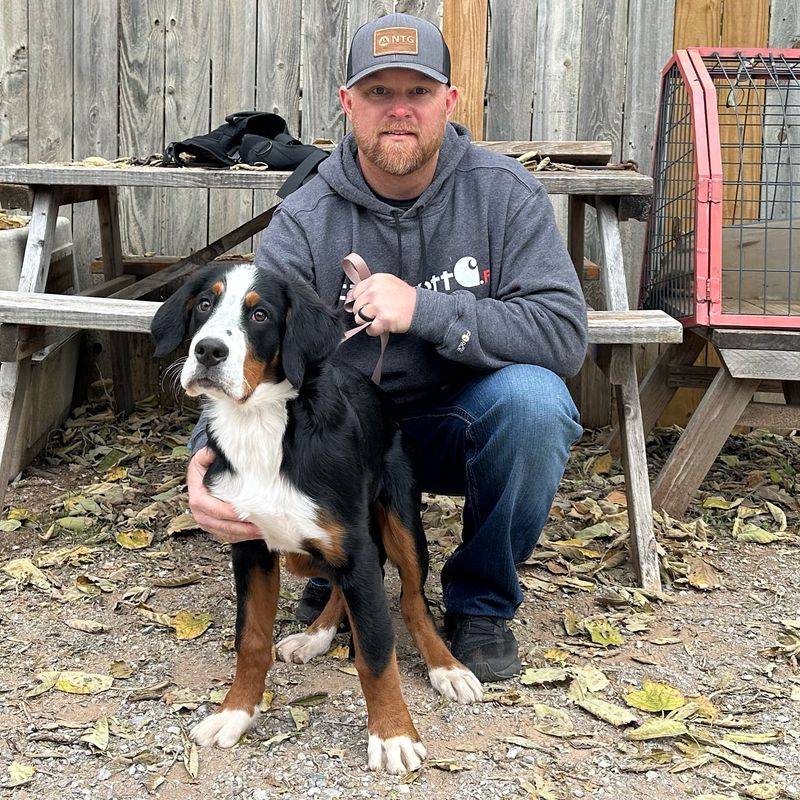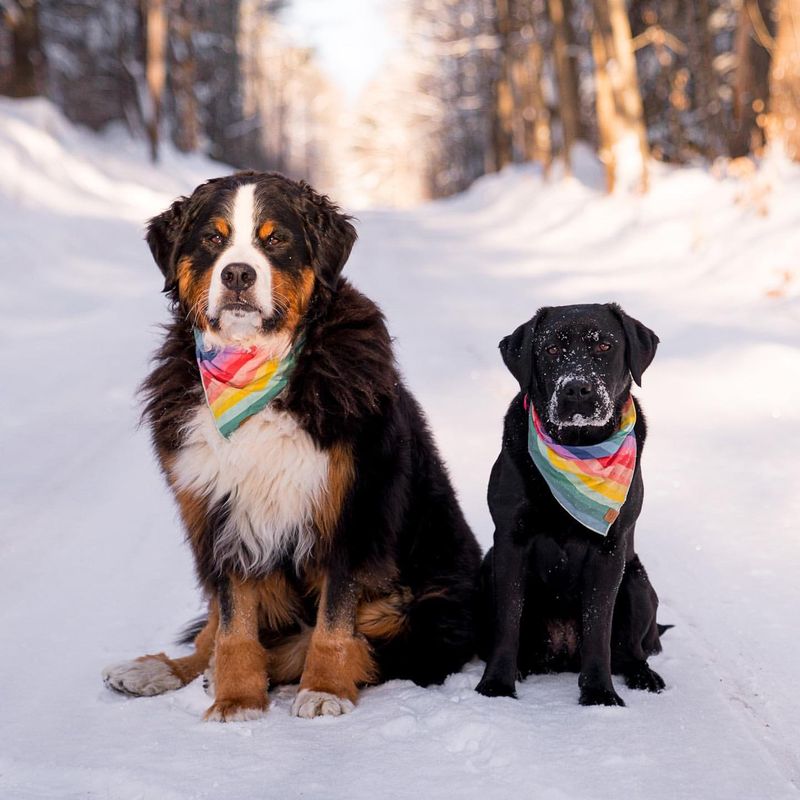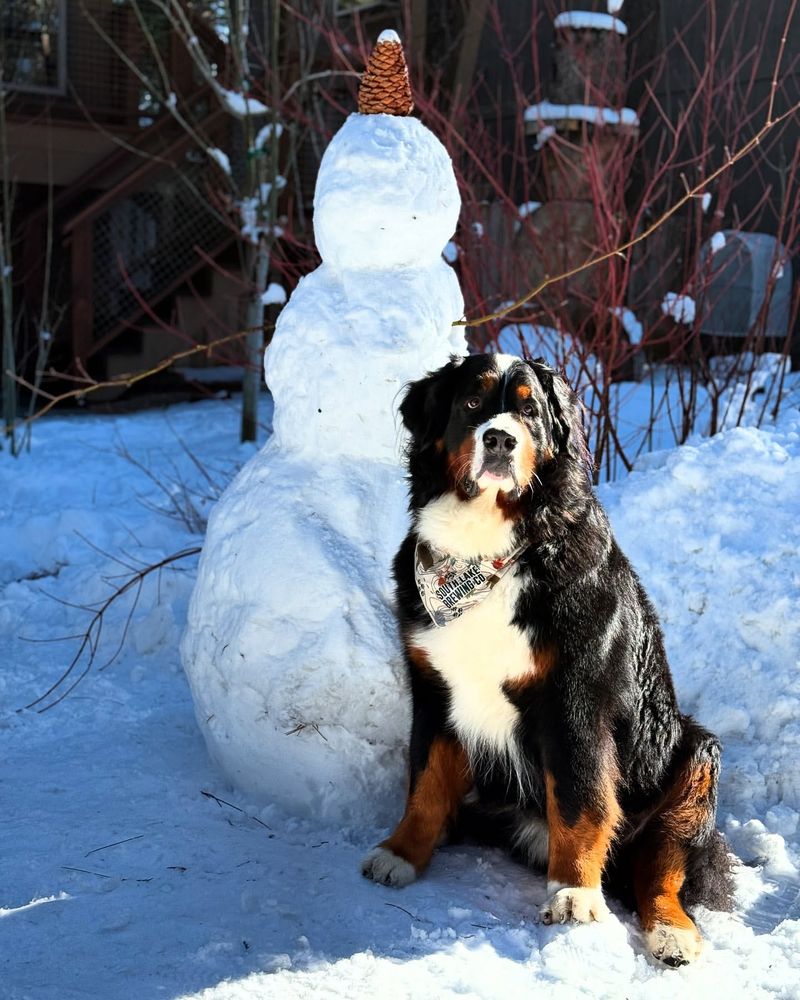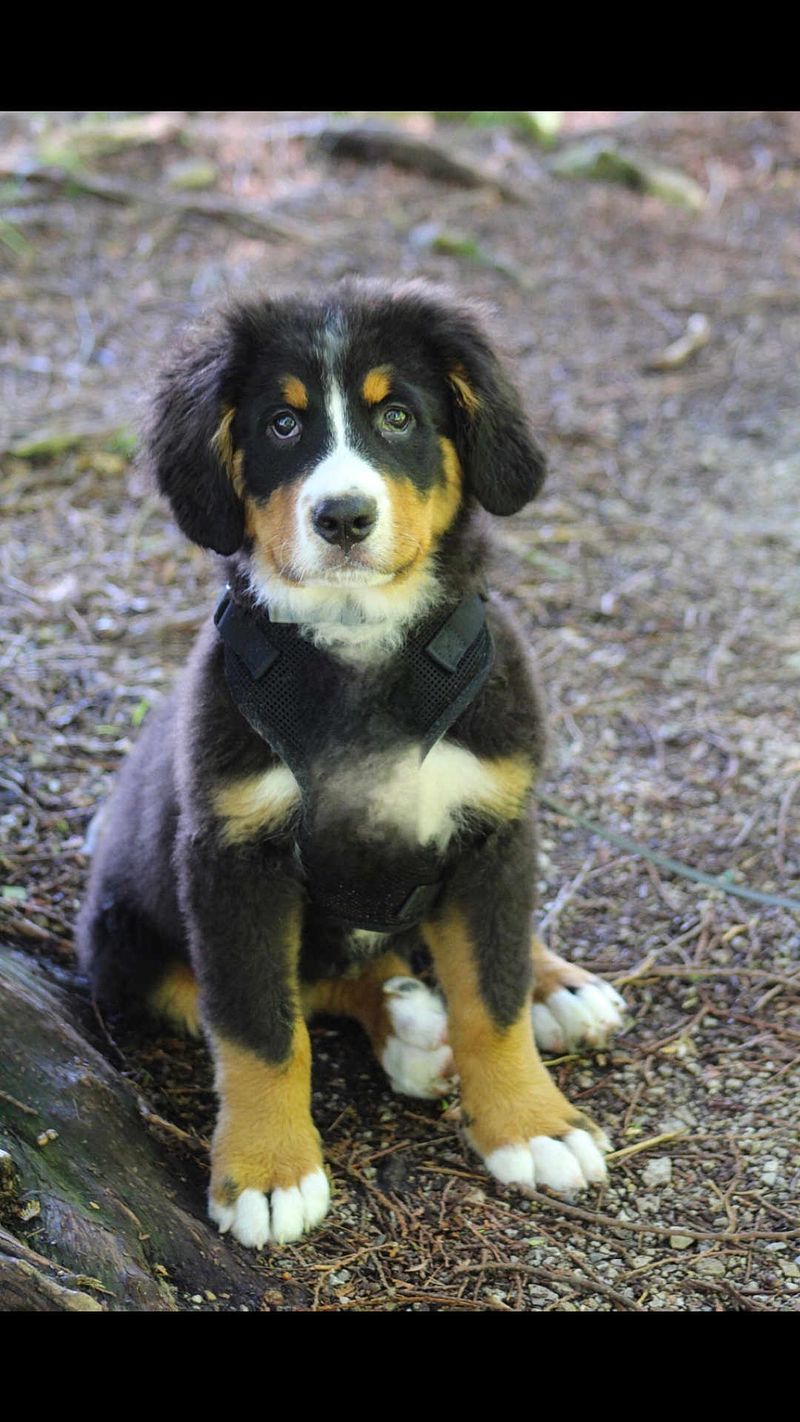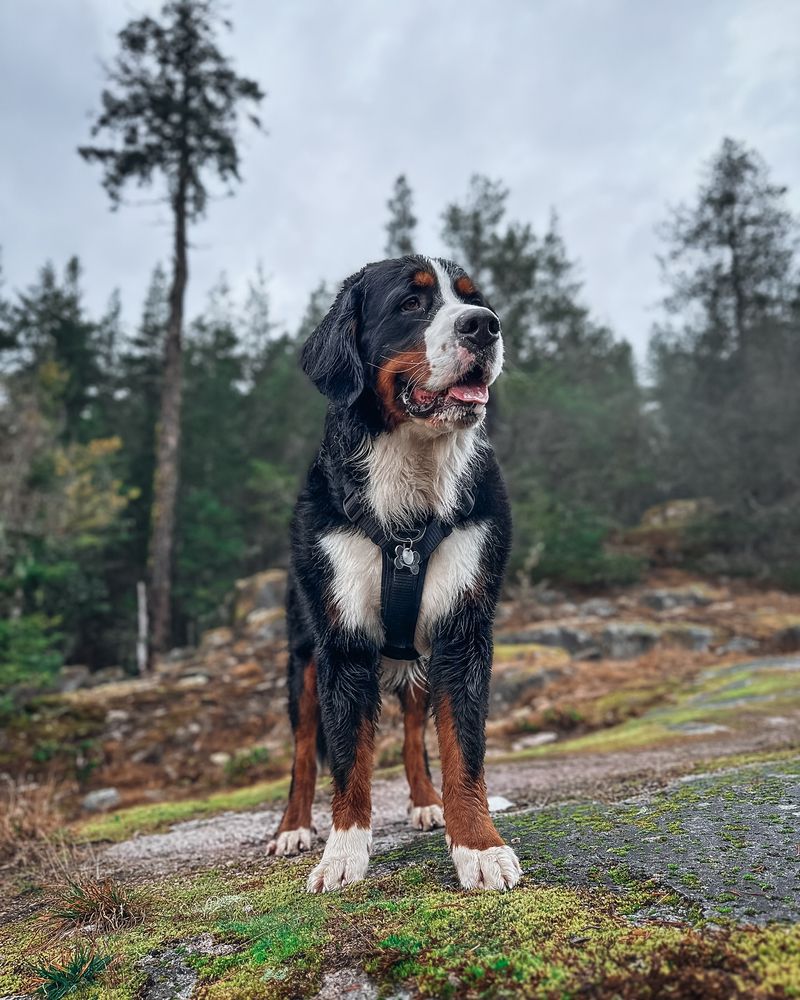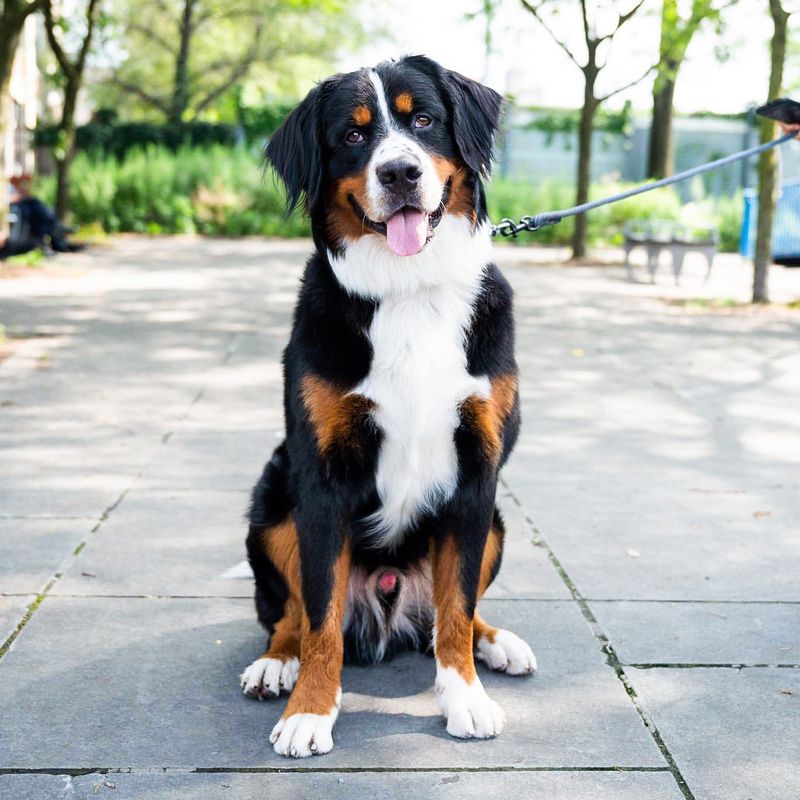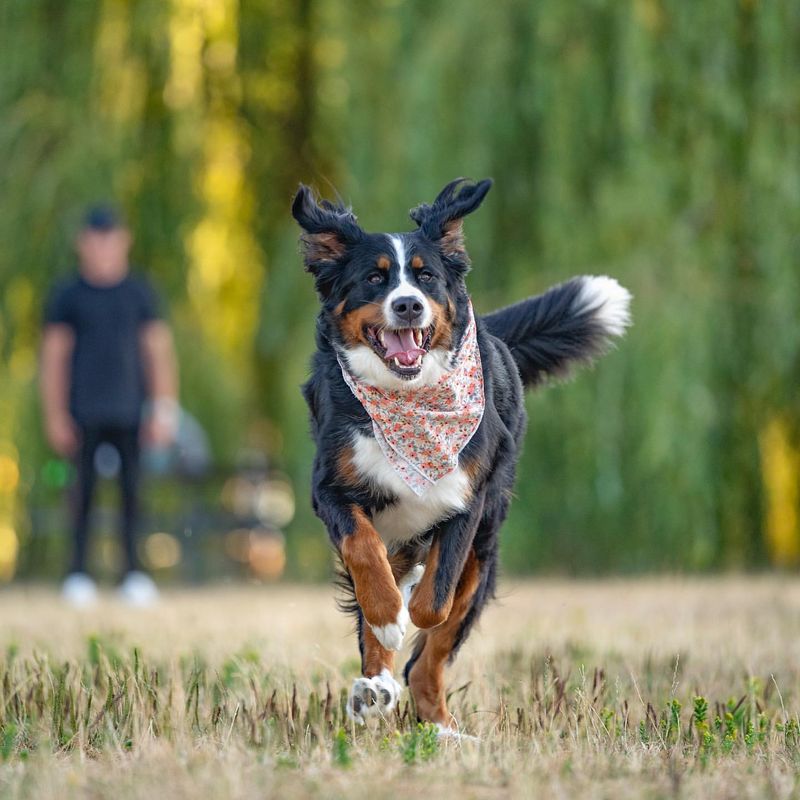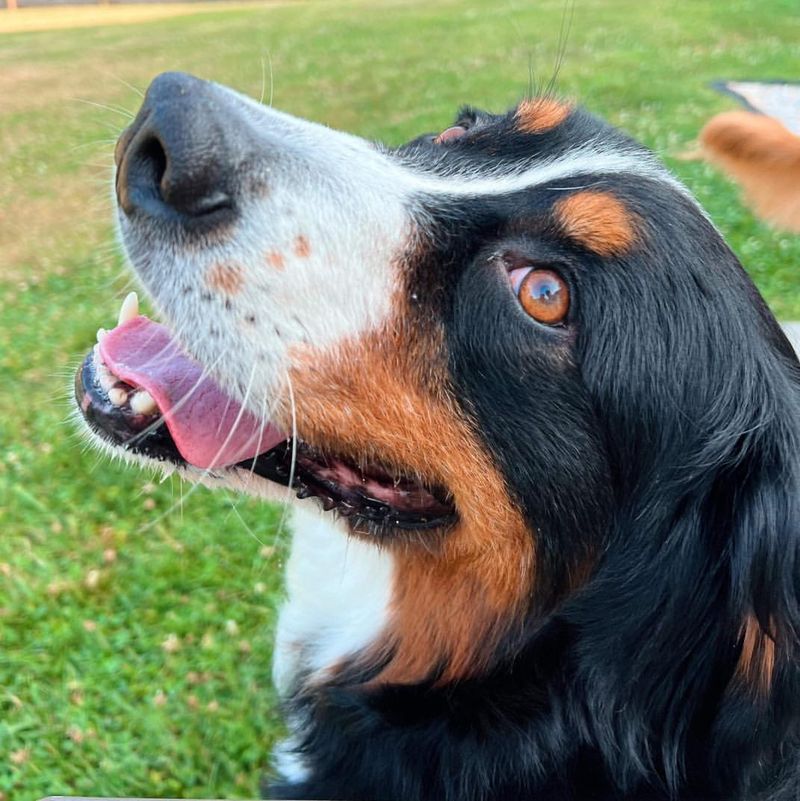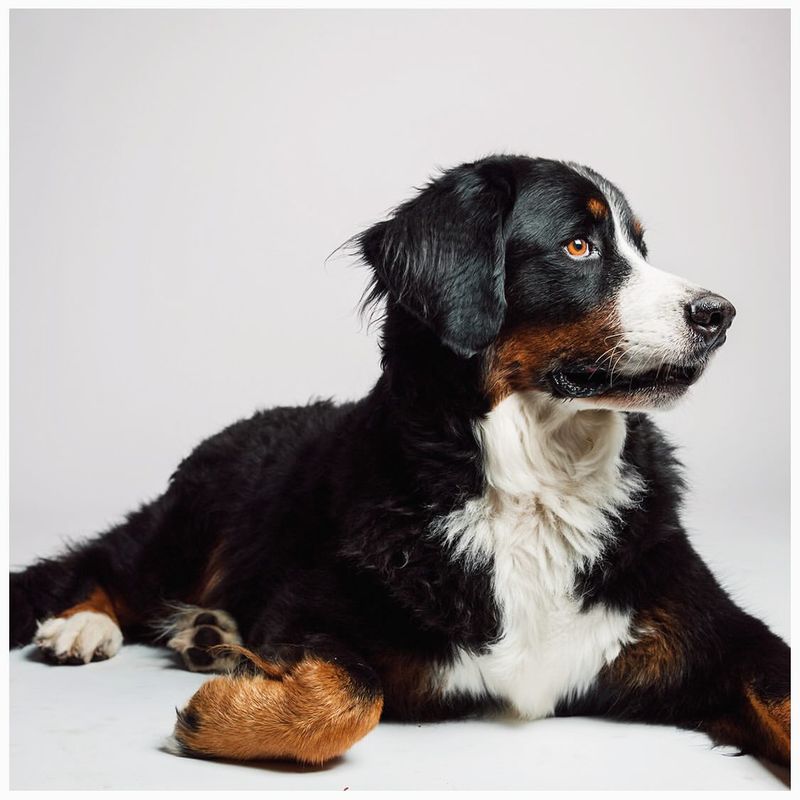The Bernese Mountain Dog, known for its striking tri-colored coat and gentle nature, is a beloved breed among dog enthusiasts. Originating from the Swiss Alps, this breed is not only a beautiful companion but also a hardworking and loyal family member. Whether you are a new owner or considering adding one to your family, understanding these essential facts will help you appreciate the unique qualities of the Bernese Mountain Dog.
History of the Breed
The Bernese Mountain Dog has a rich history that dates back to the Swiss Alps, where they were originally bred as farm dogs. These dogs were used for herding cattle, pulling carts, and serving as loyal companions to farmers.
Their strength and endurance made them indispensable in mountainous farming regions. As industrialization reduced the need for draft dogs, their role transitioned more towards companionship. Today, they are cherished for their loyalty and gentle nature, captivating dog lovers worldwide with their distinct tri-colored coat and expressive eyes.
Distinctive Appearance
Bernese Mountain Dogs are easily recognizable by their striking tri-colored coat, which features a mix of black, white, and rust colors. Their large, sturdy build and expressive, dark eyes give them a gentle and friendly appearance.
Their thick double coat not only adds to their allure but also provides insulation, making them well-suited for colder climates. Regular grooming helps maintain their beautiful appearance, preventing matting and reducing shedding. Owners often find joy in the grooming process, which strengthens the bond between them and their dogs.
Temperament
Known for their gentle and affectionate nature, Bernese Mountain Dogs make excellent family pets. They are especially good with children, displaying a patient and tolerant demeanor that endears them to families.
While they are generally friendly, early socialization is crucial to ensure they grow into well-rounded adults. Their loyalty and protective instincts make them reliable watchdogs, though they are rarely aggressive. Engaging with them through play and training can enhance their natural intelligence and responsiveness, providing a fulfilling companionship experience.
Exercise Needs
Bernese Mountain Dogs have moderate exercise needs, requiring regular activity to maintain their physical and mental health. Daily walks, play sessions, and occasional hikes are excellent ways to keep them active and happy.
Due to their size, they benefit from spacious environments where they can move freely. It’s important to avoid over-exercising them, especially when they are puppies, as their joints are still developing. Providing them with a balance of activity and rest will ensure they grow into healthy and content adults.
Lifespan and Health
The average lifespan of a Bernese Mountain Dog ranges from 7 to 10 years, though some may live longer with proper care. This breed is prone to certain health issues, including hip dysplasia, elbow dysplasia, and certain cancers.
Regular veterinary check-ups, a balanced diet, and proper exercise can help manage these risks and promote a healthier life. Being informed about their health predispositions allows owners to take proactive steps in providing the best care possible, ensuring their furry friends enjoy a happy and fulfilling life.
Grooming Requirements
Maintaining a Bernese Mountain Dog’s coat requires regular grooming, which includes brushing several times a week. This helps prevent matting and reduces shedding, keeping their coat healthy and beautiful.
Bathing can be done occasionally, depending on their level of activity and exposure to dirt. Due to their thick double coat, it’s important to dry them thoroughly after baths to avoid skin issues. Regular grooming sessions not only keep them clean but also provide an opportunity for owners to bond with their dogs, strengthening their relationship.
Dietary Needs
Proper nutrition is vital for the well-being of a Bernese Mountain Dog, supporting their growth and overall health. A high-quality, balanced diet tailored to their age, size, and activity level is essential.
Owners should consult with veterinarians to determine the best feeding plan, ensuring they receive appropriate nutrients for their needs. Monitoring their weight is crucial, as obesity can lead to health problems, exacerbating existing conditions. Providing a nutritious diet not only keeps them healthy but also enhances their energy and quality of life.
Training Tips
Training a Bernese Mountain Dog can be a rewarding experience, as they are intelligent and eager to please. Positive reinforcement methods, such as treats and praise, work best with this breed.
Consistency and patience are key to successful training. Early socialization and basic obedience training lay the foundation for a well-behaved adult dog. Engaging them in fun activities, like agility or obedience classes, can enhance their skills and provide mental stimulation. Training sessions are not only educational but also strengthen the bond between the dog and owner.
Socialization Importance
Socialization is a crucial aspect of raising a well-adjusted Bernese Mountain Dog. Early exposure to diverse environments, people, and other animals helps them develop a confident and friendly demeanor.
Puppy classes and playdates can be beneficial, offering opportunities for positive interactions. A well-socialized Bernese is less likely to exhibit fear or aggression, making them more adaptable to various situations. Continual socialization throughout their life ensures they remain comfortable and sociable, enhancing their overall well-being and the enjoyment of those around them.
Living Environment
Bernese Mountain Dogs thrive in environments that provide ample space and opportunities for activity. They are best suited for homes with large yards or access to open areas where they can roam and play freely.
Apartment living can be challenging for this breed due to their size and exercise needs, though not impossible with commitment to regular outdoor activities. They enjoy being part of family life, preferring to be indoors with their human companions. A loving and inclusive environment ensures their happiness and allows them to flourish.
Compatibility with Children
The gentle and patient nature of Bernese Mountain Dogs makes them excellent companions for children. They are known for their tolerance and protective instincts, often forming strong bonds with younger family members.
Supervision is advised during interactions, especially with very young children, to ensure safety for both the child and the dog. Teaching children respectful ways to interact with dogs promotes harmonious relationships. Their nurturing demeanor makes them a beloved choice for families seeking a canine friend to share their lives with.
Unique Personality Traits
Bernese Mountain Dogs possess a unique blend of traits that make them highly endearing. Their playful, yet gentle nature is complemented by their natural intelligence and eagerness to please.
They often display a charming quirkiness, bringing joy and laughter to those around them. Understanding their individual personalities enhances the bond between them and their owners, allowing for a fulfilling companionship. Their loyal and devoted disposition means they thrive on love and attention, making them wonderful additions to any family home.
Adaptability to Weather
With their thick double coat, Bernese Mountain Dogs are well-adapted to cold weather conditions. They enjoy playing in the snow and can withstand chilly temperatures better than many other breeds.
However, care should be taken during hot weather, as they can overheat easily. Providing shade, water, and avoiding strenuous activities during peak heat hours are essential. Their adaptability to different climates makes them versatile companions, but ensuring their comfort and safety in extreme conditions is a responsibility owners must prioritize.
Common Health Concerns
Like many large breeds, Bernese Mountain Dogs are susceptible to specific health issues, including hip and elbow dysplasia, bloat, and certain types of cancer. Regular veterinary check-ups and awareness of symptoms are important for early detection and management.
A healthy lifestyle, including proper diet and exercise, contributes to minimizing health problems. Understanding their predispositions enables owners to provide targeted care, enhancing their quality of life. By staying informed, owners can help their Bernese live longer, more fulfilling lives, filled with love and companionship.
Traveling with Your Dog
Traveling with a Bernese Mountain Dog can be a delightful experience with proper preparation. Their size requires ample space in vehicles, so ensuring a comfortable setup is crucial.
Familiarizing them with car rides from an early age helps reduce anxiety and makes travel enjoyable. Bringing along their favorite toys and providing regular breaks for walks and relief are beneficial. Planning ahead for pet-friendly accommodations and activities ensures a smooth journey, allowing them to be part of family adventures.
Role as Working Dogs
Historically, Bernese Mountain Dogs have been valued for their role as working dogs, particularly in farm settings. Their strength made them ideal for pulling carts, and their intelligence aided in herding livestock.
While their working roles have diminished, they still enjoy activities that engage their physical and mental abilities. Participation in dog sports or therapy work can provide them with a sense of purpose. Embracing their working heritage through structured activities allows them to thrive and showcases their remarkable capabilities.
Understanding Their Vocalization
Bernese Mountain Dogs are known for their distinct vocalizations, using different sounds to communicate. They may bark to alert their owners or express excitement, but excessive barking is uncommon.
Understanding their vocal cues can enhance communication and help address any behavioral issues. Training can help manage unwanted barking, ensuring a peaceful environment. By recognizing their vocal patterns, owners can respond appropriately, fostering a harmonious relationship with their furry companions.
Participating in Dog Sports
Participating in dog sports can be an enriching experience for Bernese Mountain Dogs, providing both physical exercise and mental stimulation. Activities like agility, obedience, and carting are well-suited to their abilities.
Such sports not only keep them fit but also strengthen the bond between dog and owner. Engaging in these activities offers opportunities for socialization and showcases their intelligence and athleticism. Involvement in dog sports can bring joy and fulfillment, highlighting the versatile nature of this remarkable breed.
Choosing the Right Breeder
Selecting a reputable breeder is essential when considering a Bernese Mountain Dog. A responsible breeder prioritizes health, temperament, and adherence to breed standards, providing transparency about the dog’s lineage.
Visiting the breeder’s facility and meeting the puppies and their parents can offer insights into their upbringing. Ensuring the breeder conducts necessary health screenings helps prevent hereditary issues. By choosing the right breeder, potential owners can ensure their new companion starts life with the best possible foundation, promoting long-term health and happiness.
Celebrating Their Legacy
The legacy of the Bernese Mountain Dog is celebrated by many, reflecting their journey from working farm dogs to cherished family companions. Their history is rich with stories of loyalty, strength, and beauty.
Breed enthusiasts often engage in events and gatherings to honor and preserve their heritage. Understanding their past enhances appreciation for their present role as beloved pets. Celebrating their legacy connects owners to a broader community of Bernese lovers, fostering a shared passion for this gentle and remarkable breed.



